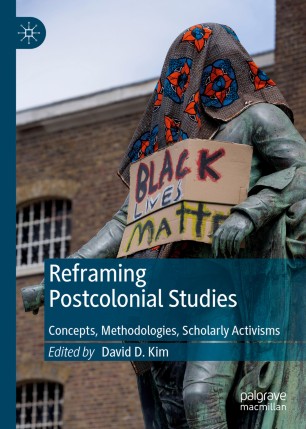

Most ebook files are in PDF format, so you can easily read them using various software such as Foxit Reader or directly on the Google Chrome browser.
Some ebook files are released by publishers in other formats such as .awz, .mobi, .epub, .fb2, etc. You may need to install specific software to read these formats on mobile/PC, such as Calibre.
Please read the tutorial at this link: https://ebookbell.com/faq
We offer FREE conversion to the popular formats you request; however, this may take some time. Therefore, right after payment, please email us, and we will try to provide the service as quickly as possible.
For some exceptional file formats or broken links (if any), please refrain from opening any disputes. Instead, email us first, and we will try to assist within a maximum of 6 hours.
EbookBell Team

5.0
80 reviews“Reframing Postcolonial Studies addresses the urgent issues that Black Lives Matter has raised with respect to everyday material practices and the frameworks in which our knowledge and cultural heritage are conceptualized and stored. Thebook points urgently to the many ways in which our society must reinvent itself to enable equitable justice for all.”— Robert J.C. Young, Julius Professor of English and Comparative Literature, New York University, USA
“Drawing on urban theory, art history, literary analysis, environmental humanities and linguistics, this book is ambitious and wide-ranging, asking us what it is to live creatively and critically with the residues of colonial appropriation and sedimentation while in open dialogue with the subjects who still live in its wake.” — Tamar Garb, Durning Lawrence Professor in History of Art, University College London, UK
This book constitutes a collective action to examine what foundational concepts, interdisciplinary methodologies, and activist concerns are pivotal for the future of common humanity, as we bear the weight of our postcolonial inheritance in the twenty-first century. Written by scholars of different generations, the chapters interrogate how current intellectual endeavors are in contact with individual and community-based actions outside of the academy. Going beyond the perennial debates on the tension between theory and praxis or on the disparity between activism and scholarship, they examine literary texts, visual artworks, language and immigration policies, public monuments, museum exhibitions, moral dilemmas, and political movements to deepen our contemporary postcolonial action on the edge of conceptual thinking, methodological experimentation, and scholarly activism. Reframing Postcolonial Studies is the first volume whose rationale is formulated in explicitly intergenerational, future-oriented terms.